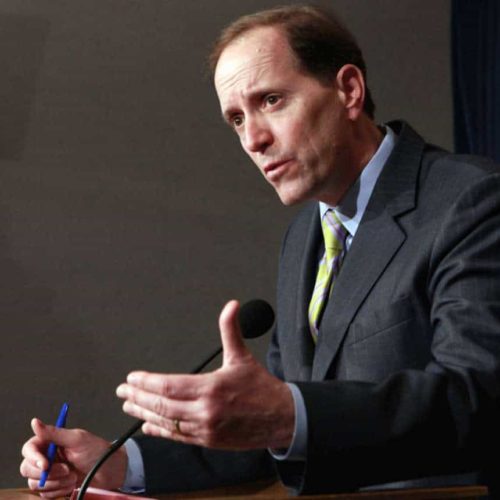Introduction
Dave Camp of Michigan, chairman of the tax-writing House Ways and Means Committee, holds conservative views on fiscal issues that have won him broad backing in the business community.
During the summer debate over raising the debt ceiling, Camp introduced a measure that would increase the debt limit with no cuts or revenues attached, and then announced he had no intention of voting for the bill. He said he offered it because he hoped its failure would demonstrate that the House GOP would not support any debt ceiling solution that did not include significant budget cuts.
Camp has championed his party’s tax-cutting ideology and anti-big government line on key issues such as the huge Medicare and Social Security entitlement programs. During the 111th Congress, Camp voted with his party 93.6 percent of the time, and the American Conservative Union gives him a lifetime rating of 89 percent.
“Rather than returning to the same failed Washington spending policies,” he said, the country “must …start with spending less, advancing our pending trade agreements and transforming our broken tax code.”
Camp, 58, has been an ardent advocate of extending the entire range of Bush-era tax cuts, which he voted for twice. Although he has occasionally credited President Obama for bipartisanship, Camp criticized the $787 billion economic stimulus package, faulting it as too costly and “not the right kind of tax relief to create jobs.”
He has advocated lowering taxes on businesses and attacked the administration’s 2010 budget for excessive spending and taxation. He played a big role in the health care reform debate: Camp wrote a GOP alternative to the Democrats’ health care reform bill and voted against the final measure, criticizing it for creating new taxes and failing to adhere to “pay as you go” budget rules.
A supporter of private accounts for Social Security, Camp played a significant role in passing welfare reform legislation in the mid-1990s that was signed into law by then President Bill Clinton.
Camp represents the state’s 4th district, which encompasses farmland and forests stretching across Central Michigan and the northwestern Lower Peninsula. Prior to his U.S. House career, Camp served in the Michigan statehouse from 1989 to 1990; and spent more than a decade as a practicing attorney in Michigan.
Top Contributors
- Investment Company Institute, a trade association for investment companies — at least $33,500
- WellPoint Inc., the health insurance company — at least $30,000
- American College of Cardiology, a trade group for cardiovascular health professionals — at least $30,000
- Altria Group, Inc., the tobacco behemoth and parent company of Philip Morris USA — at least $30,000
- Amgen Inc., a biotechnology company — at least $28,500
- Since the beginning of 2009, PACs gave at least $4.2 million to Camp’s campaign account and his Continuing A Majority Party Action Committee leadership PAC
Revolving door
- Dena Battle, legislative director (May 1999 to May 2001), a lobbyist at Capitol Counsel LLC, where she represents a range of clients including General Electric, Rent-a-Center, Reynolds American Inc., and Wal-Mart Stores, Inc.
- Christopher Wenk , legislative assistant (Jan. 2001 through Sept. 2004), is senior director for international policy for the U.S. Chamber of Commerce
- Behrends Foster , an ex-chief of staff for Camp who was with him from 1994-2001, is a partner in Blue Stone Strategies , where he represents America’s Health Insurance Plans and other clients
Statements on Super Congress
- Camp said in a statement that “Last Friday’s downgrade of our debt by S&P is a strong reminder of how important it is for this Committee to lead and focus on restoring confidence in America by further cutting out of control spending and reducing the deficit. If we are successful in curbing the overspending in Washington that has sparked fear in the financial markets and created uncertainty on Main Street, we will start to see the job creation we desperately need.”



Join the conversation
Show Comments